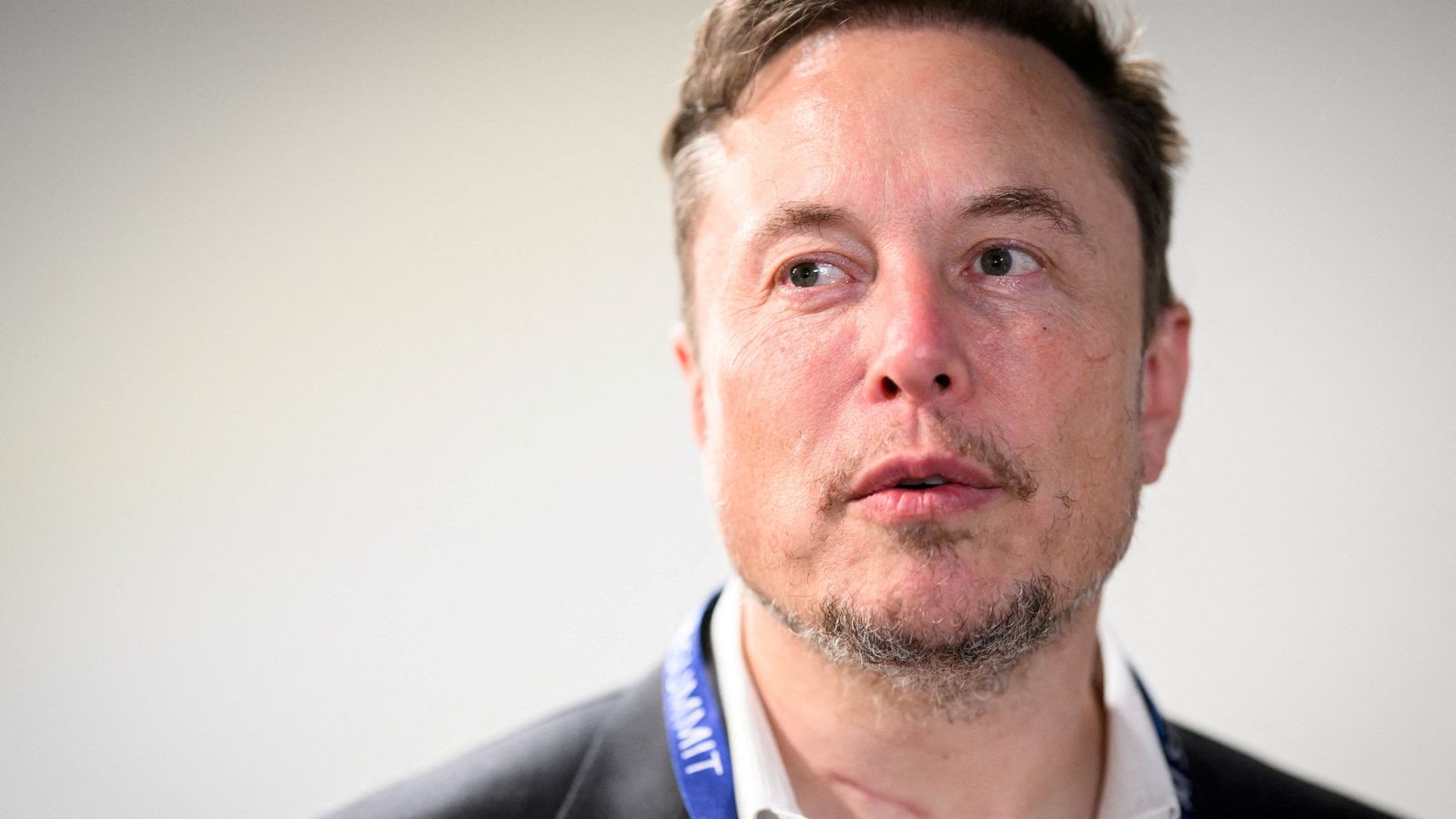Elon Musk has launched a fiery attack on advertisers who have stopped promoting on his social media platform X, telling them to “go f*** yourself”.
At the New York Times DealBook summit on Wednesday, the X CEO was asked about American firms – including Disney – who pulled ads after he apparently endorsed an antisemitic conspiracy theory.
Bluntly, Musk said: “Don’t advertise. I don’t want them to advertise.
“If somebody’s gonna try to blackmail me with advertising, blackmail me with money? Go f*** yourself,” he said.
“Go. F***. Yourself. Is that clear? I hope it is. Hey, Bob, if you’re in the audience,” he added, in an apparent reference to Robert Iger, chief executive of Disney.
Despite the expletive-laden defence, Musk acknowledged the advertising row could be the end for X, which he purchased for $44bn in 2022.
“What this advertising boycott is going to do is, it is going to kill the company,” he said.
UK to launch an Online Fraud Charter with 11 major tech companies including TikTok, Snapchat and YouTube
Disc vital to forming stars and planets found outside Milky Way in astronomical first
Elon Musk accused of promoting ‘Pizzagate’ conspiracy theory
“And the whole world will know that those advertisers killed the company.”
The New York Times reported X’s own internal documents say losing the advertisers could see the company lose as much as $75m in revenue by the end of the year.
In the on-stage interview, Musk also apologised for endorsing an antisemitic conspiracy theory in response to a post on X that helped fuelled the advertiser exodus.
Musk agreed with a post on X that falsely claimed Jewish people were stoking hatred against white people, saying the user who referenced the “Great Replacement” conspiracy theory was speaking “the actual truth”.
That conspiracy theory holds that Jewish people and leftists are engineering the ethnic and cultural replacement of white populations with non-white immigrants that will lead to a “white genocide”.
Musk described his post as possibly the worst he had made during a history of messages that included many “foolish” ones.
He told yesterday’s summit in New York: “I mean, look, I’m sorry for that … post.
“It was foolish of me. Of the 30,000 it might be literally the worst and dumbest post I’ve ever done.
“And I’ve tried my best to clarify six ways from Sunday, but you know at least I think it’ll be obvious that in fact far from being antisemitic, I’m in fact philosemitic.”
Following the post, major US companies including Disney, Warner Bros and Sky News’ parent company Comcast suspended their ads on X.
Rishi Sunak, who recently conducted a Q&A with Musk at a two-day summit on Artificial Intelligence in London, condemned antisemitism after Musk’s comments and added: “It doesn’t matter whether you’re Elon Musk or you’re someone on the street who’s shouting abuse at someone who happens to be walking past.”
Since taking over Twitter – rebrande as X – last year, Mr Musk’s ownership has caused jitters among advertisers who have raised concerns about policies like reduced content moderation.
The platform’s US ad revenue is down by at least 57% each month compared to the same month last year since Musk’s takeover, according to Reuters news agency.
Read more:
Elon Musk meets Israeli officials amid antisemitism row
Musk accused of promoting ‘Pizzagate’ conspiracy theory
Last week’s mass exodus of advertisers came after Media Matters, an antisemitism watchdog, published a report that found firm’s promotions were being shown next to racist posts on X.
It said adverts from major brands including Apple and Oracle were placed next to antisemitic material.
In response, Musk’s firm filed a lawsuit in Texas against the watchdog, accusing it of “knowingly and maliciously” portraying ads next to hateful material “as if they were what typical X users experience on the platform”.
Media Matters said it stood by its reporting, with its president Angelo Carusone adding: “This is a frivolous lawsuit meant to bully X’s critics into silence.”
In August, Musk’s X also sued The Center for Countering Digital Hate after it reported a rise in hate speech on the platform.





